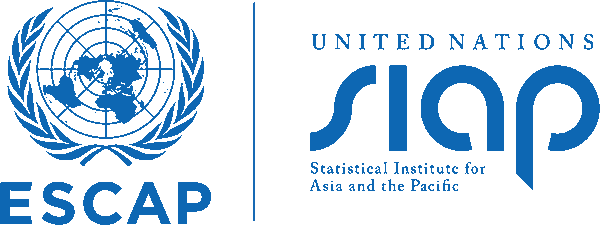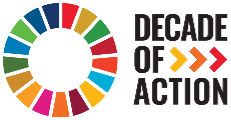
Regional Workshop on Statistical Literacy: Increasing Effective Use of Agricultural and Rural Statistics
13-17 July, 2015, Daejeon, Republic of Korea
Objectives
The Global Strategy to Improve Agricultural and Rural Statistics (GSAR) aims to halt the rapid decline in the content and quality of agricultural statistics by restoring sustainable systems that produce them. It also aims to support demand for emerging data needs to support policy decisions that link agriculture, poverty and the environment.
Agricultural and rural statistics are wide ranging and oftentimes very complex depending on who is using them. Policy makers in government, private business, farmers, academics, students and the general public use agricultural statistics in some way to meet their specific needs. The ability to understand statistics and interpret them correctly—statistical literacy-- is an identified weakness for many countries; this has a direct link to the effective use of data and statistics in the formulation of policies which continues to be a huge challenge.
The capability of official statistical institutions, whether national statistical offices or statistical units of ministries, to lead users of core data on agricultural and rural statistics to correctly interpret, and make accurate inferences from statistics is key to raising the levels of statistical literacy needed to increase their policy use.
This Regional Workshop on Statistical Literacy: Increasing Effective Use of Agricultural and Rural Statistics brings together statisticians and stakeholders to examine the issues that need to be addressed in increasing statistical literacy of users of data, particularly those involved in the policy-making process, identify the training needs for improving core competencies for statistical literacy and to map out concrete strategies and implementing activities to meet the identified training needs in their respective countries.
| Course Materials | ||
|---|---|---|
Module 1– Statistical Literacy on Agricultural and Rural Statistics (ARS): What it means and why does it matter. Why is statistical literacy needed to improve use of agricultural and rural statistics? | ||
| Session 1.1: | Policy and data issues in the agricultural and rural sectors in the context of the minimum core data set of the Global Strategy for ARS, with focus on food security | |
| Session 1.2: | Statistical Capability Framework – processes and statistical capabilities required towards more effective use of ARS | |
| Session 1.3: | Statistical literacy - its essential components and how it improves the use of ARS Country presentation: - The Philippine Agricultural Statistics Dissemination and Advocacy Systems Towards Statistical Literacy - How Statistical Literarcy has improved the use of ARS (India) | |
| Session 1.4: | Statistical illiteracy - the cost of being statistically illiterate on ARS | |
| Session 1.5: | The competencies required for each of the components | |
Handout: | The Competencies required for each of the components Identifying competencies needed for each component (and at three levels) of statistical literacy | |
Module 2 – The policy development cycle: An informed process - Understanding the policy development cycle and the role of statistics in each of its stages; identifying the key players and their capacity needs towards improved use of statistics in all stages of the policy development cycle | ||
| Session 2.1: | The policy development cycle and the role of statistics Country presentation: Agricultural Data and Information System in Indonesia | |
| Session 2.2: | Fitting the use of statistics in the policy development cycle | |
Handout: | Fitting the use of statistics in the policy development cycle | |
| Session 2.3: | Identifying key players and users of statistics involved in each stage of the policy development cycle, with focus on decision makers in government and key messengers/influencers | |
Handout: | Who drives policy development? Identifying key players and users of statistics involved in each stage of the policy development cycle | |
| Session 2.4: | Statistical competency requirements for groups of decision makers and key messengers/influencers to effectively use ARS in the policy development cycle | |
Handout: | Using personas to better understand data users Example persona | |
Module 3 – Assessing practices in increase statistical literacy: Focus on needs of decision makers in government and their key messengers/influencers. | ||
| Session 3.1: | How effective are data producers in facilitating statistical literacy with respect to raising awareness on ARS? Country presentation: Country case on existing strategy/ tool/ activity Samoa Bhutan | |
Handout: | How many people work in agriculture in the European Union? | |
| Session 3.2: | How effective are data producers in facilitating statistical literacy with respect to understanding of ARS? | |
Handout: | a. USDA NASS - Education & Outreach - Understanding Agricultural Statistics b. USDA Guide to NASS Surveys and Programs - Census of Agriculture c: USDA Guide to understanding sampling errors d: UK The Rural-Urban Classification for Output Areas in England (RUCOA_leaflet_May2015) e: UK Rural_population_and_migration_2013 | |
| Session 3.3: | How effective are data producers in facilitating statistical literacy with respect to analysis of ARS? | |
Handout: | a: Ministry of Fisheries and Agriculture Fisheries (Maldives fisheries statistics web page) b: Maldives basic fisheries statistics booklet 2013 c: Bangladesh Household Survey of Poultry and Livestock (2009) d: ILO Analytical note on rural employment | |
| Session 3.4: | How effective are data producers in facilitating statistical literacy with respect to communication of ARS? Country presentation: A Brief Introduction to Spatial Regression (Korea) | |
Handout: | FAO CountrySTAT Communication Strategy | |
Module 4 – Developing effective strategies, tools and activities to increase statistical literacy for more effective use of ARS: Focusing on improving competencies of decision makers in government and their key messengers/influencers. | ||
| Session 4: | Series of four practical workshops that will improve knowledge and skills of participants in identifying effective strategies, developing and designing specific types of tools and using these for suitable activities for increasing statistical literacy. Reference: Main Topic: Action Planning for Improving Statistics on MDGs | |
Workshop: | [Workshop 1] media channels (e.g., press releases) [Workshop 2] statistics websites [Workshop 3] social media [Workshop 4] training (including, a template for developing a training course) Training Course on Statistical Literacy Towards Increasing Effective Use of Agricultural and Rural Statistics | |
Module 5– Next steps: Taking action to increase statistical literacy for improved use of ARS in the policy process | ||
| Session 5.1: | Developing a training course on statistical literacy on ARS | |
| Session 5.2: | Taking action in the next six months: Country plans | |
